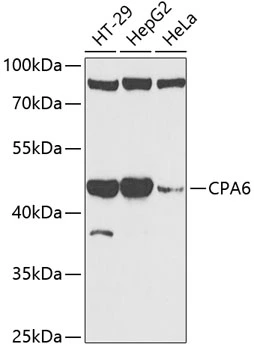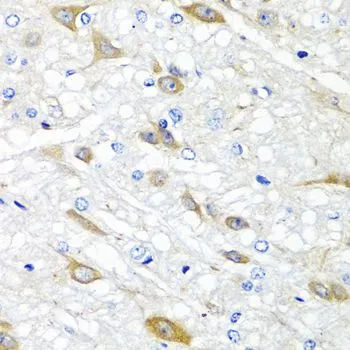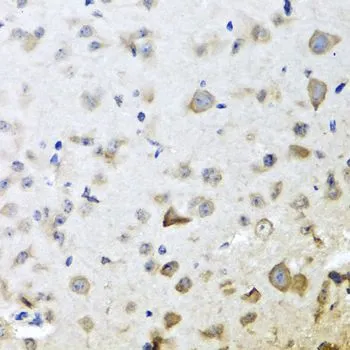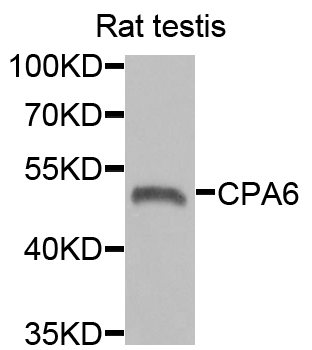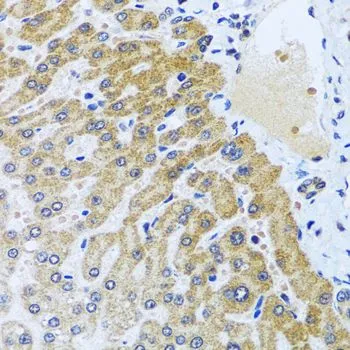
IHC-P analysis of human liver tissue using GTX65936 CPA6 antibody. Dilution : 1:100
CPA6 antibody
GTX65936
ApplicationsWestern Blot, ImmunoHistoChemistry, ImmunoHistoChemistry Paraffin
Product group Antibodies
ReactivityHuman, Mouse, Rat
TargetCPA6
Overview
- SupplierGeneTex
- Product NameCPA6 antibody
- Delivery Days Customer9
- Application Supplier NoteWB: 1:500 - 1:2000. IHC-P: 1:50 - 1:200. *Optimal dilutions/concentrations should be determined by the researcher.Not tested in other applications.
- ApplicationsWestern Blot, ImmunoHistoChemistry, ImmunoHistoChemistry Paraffin
- CertificationResearch Use Only
- ClonalityPolyclonal
- ConjugateUnconjugated
- Gene ID57094
- Target nameCPA6
- Target descriptioncarboxypeptidase A6
- Target synonymsCPAH, ETL5, FEB11, carboxypeptidase A6, carboxypeptidase B
- HostRabbit
- IsotypeIgG
- Protein IDQ8N4T0
- Protein NameCarboxypeptidase A6
- Scientific DescriptionThe gene encodes a member of the peptidase M14 family of metallocarboxypeptidases. The encoded preproprotein is proteolytically processed to generate the mature enzyme, which catalyzes the release of large hydrophobic C-terminal amino acids. This enzyme has functions ranging from digestion of food to selective biosynthesis of neuroendocrine peptides. Mutations in this gene may be linked to epilepsy and febrile seizures, and a translocation t(6;8)(q26;q13) involving this gene has been associated with Duane retraction syndrome. [provided by RefSeq, May 2016]
- ReactivityHuman, Mouse, Rat
- Storage Instruction-20°C or -80°C,2°C to 8°C
- UNSPSC41116161

